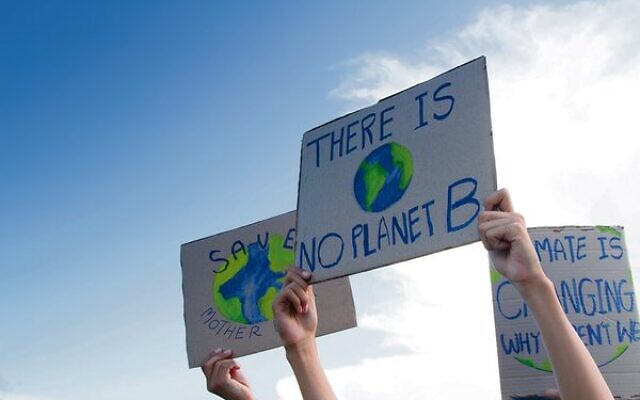The role of the Jew today
'Why do I focus on social justice issues?'

DR David Bryfman, CEO of the Jewish Education Project in New York City, and former director of Hillel, a past subsidiary program of Shalom, recently spoke at Shalom’s 50th anniversary event aimed at current and past staff and board members. During his talk, he mentioned that the Jew of today is not being guided by the lure of tradition, spiritualism or faith, but rather how to become a better human being. What he meant was, Jewish institutions (religious, educational, social etc.) should not expect young Jews to engage with them just because they are Jewish institutions – they need to serve to transform the individual into being a better person.
It sounds radical, but in actuality, it should be seen as the most simple expression of Judaism.
Judaism, at its core, has always been about the fixing of humanity to reach our full potential. I would argue that this was humanity’s core mission as well, but it faded away, leaving Judaism with a particular command to inspire the world around us to do better at being better. We have not only been charged with the command of being a light unto the nations, but with numerous opportunities to look at our community, the society around us, and the environment we live in, and to better it.
Since the dawn of the Enlightenment period, Judaism has been caught in a place of infighting, survivalism and isolationism, which divorced us from the need to pursue social justice, not as some “wokeism” or “leftist agenda”, but as a theological and cultural imperative. The schism between Reform and Orthodoxy would occupy the intellectual creativity of our theological greats over the past 200 years. The necessity of recovering from the Holocaust and the constant threat of annihilation in the early days of the establishment of the State of Israel would divert the majority of resources towards the State. And the isolationist policies of Jewish continuity to ensure that rising intermarriage would not lead the Jewish people to an untimely end, would pedestal Jewish guilt over a carefully crafted message of relevancy.
All these meant that minds and creativity were diverted from the central mission of the Jewish people; to inspire each of us to become better human beings – to be better and do better.
It also meant, that somehow this ideal became a partisan issue. If you were involved in social justice you were from the left, not to be trusted, corrupting of religious values. If you were more religiously observant, you couldn’t really be doing social justice, because religious values were incongruent to social justice values.
If, for a moment, we stood back and looked at social justice from a purely theological lens, from a purely Jewish lens, we would see a completely different picture.
Feeding the poor would not be a left-wing, anti-capitalist protest against the conservative individualists, but rather a religious expression of tithing, gleaning, and sabbatical years. Providing a leg up for single mothers would not be an expression of feminism, but perhaps the theological principle of supporting the widowed and downtrodden. Caring for the environment would not be woke climate activism, but an authentic act of fulfilling the command not to waste, and an interpretation of the allegoric idea to protect the gift of the world that God has given us.
For the young Jew of 2023, the primary reason to engage in Judaism and our communal offerings, is to glean from spiritual, mystical, theological, cultural and social offerings in order to strengthen an identity of being a better human being. This should not be looked down on by establishments, leadership, or nostalgic parents or grandparents, because ultimately, this is the primary reason that Judaism exists as well.
I am constantly questioned in my leadership and rabbinic roles, “Why do I focus on social justice issues, which are so political, as opposed to Jewish issues?” My response is always the same – I don’t, I focus on Jewish issues. It is not my fault that these campaigns, issues, or projects have been hijacked by certain political or social interest groups, they are fundamentally Jewish.
If we are going to have any hope of captivating the minds and souls of the next generation of young Jews, we must rid ourselves of the notion that issues of importance to them are partisan political issues – they aren’t. The issues are human issues. Equality, equity, autonomy and justice – these are things that each of us craves, and each of us deserves. The pursuit of them makes for better human beings. The pursuit of them is a fundamentally Jewish expression, a central mission of our people.
Acknowledging this, funding this and operating communal organisations to these ends will bring more people in, provide a more authentic Jewish expression, and lead to a greater level of engagement across the other important areas of Jewish expression and identity.
Rabbi Alon Meltzer is the director of programs at Shalom and works with Mizrachi Synagogue on rabbinic projects.

comments